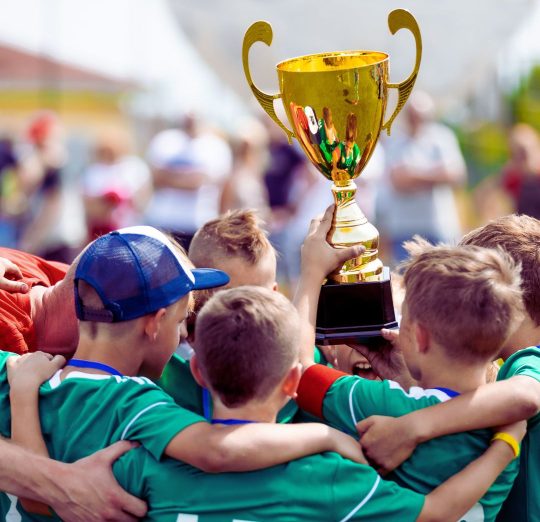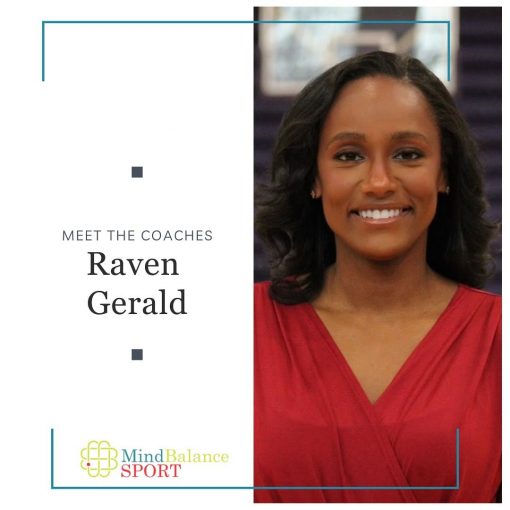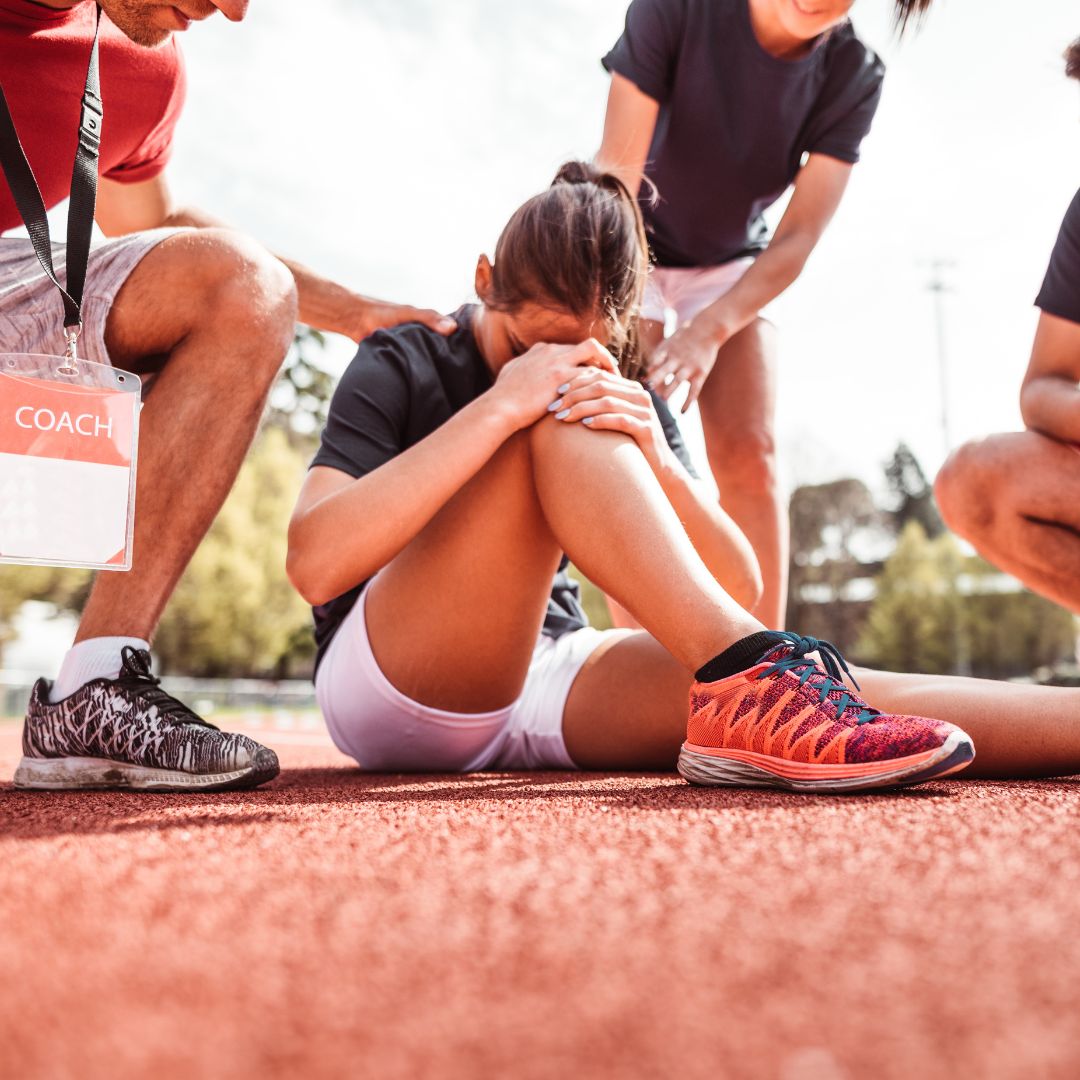Sports Psychologist in Bowie, MD
You want to work on your mental game, but how do you train your brain?
At MindBalanceSPORT, We Train The Other Half Of The Athlete.
You want to work on your mental game, but how do you train your brain?
Mental training does not get much media attention, but at MindBalanceSPORT we know it is a game changer. The mental skills you will learn at MindBalanceSPORT are generalizable in the classroom, in sport and in life!
We know that mental skills can be successfully taught, even at an early age.

Our Services
Meet the Team





testimonials
Athlete Stories: Real Comebacks, Real Results

Emma, a high school basketball player, tore her ACL in the middle of her junior season. After surgery, she struggled with self-doubt and fear every time she stepped back on the court. Through sport psychology training, she learned visualization techniques and confidence-building exercises that helped her regain trust in her knee. When she returned for her senior season, she didn’t just play—she led her team to the playoffs.

Carlos, a soccer player, suffered a stress fracture in his foot and had to miss half of his season. Sitting out was mentally tougher than the pain itself. We worked on mental engagement strategies to keep him sharp—studying game film, setting small rehab goals, and using mental imagery to stay ready. When he was finally cleared, his confidence never wavered.

Jordan, a track athlete, strained her hamstring before a major competition. She feared losing speed and falling behind competitors. Instead of focusing on what she couldn’t do, we redirected her energy toward mental preparation, using self-talk and goal setting to keep her confidence strong. When she returned, she set a new personal record.
EXCELLENTTrustindex verifies that the original source of the review is Google. It was a great help to my 14-year-old competitive volleyball player daughter. Raven was great to understand and connect with her from start to end. We will continue with our sessions as needed.Trustindex verifies that the original source of the review is Google. Great results! I’ve loved working with Paula. Our sessions have greatly improved both the physical and mental aspects of my tennis game. I’m playing better and having more fun! Highly recommend!Trustindex verifies that the original source of the review is Google. Our family had a wonderful experience with Paula Castro. We needed some additional confidence in a particular area/sport and Paula helped get us there. We know who to turn to if we need help again. She’s been a Blessing. Thank you, Paula!Trustindex verifies that the original source of the review is Google. I highly recommend MindBalanceSPORT. Our son works with John Howard. John is very caring, positive, and effective at working with teenagers. John is an adept listener and created an individualized plan tailored to our son’s personality. After just a few sessions with John, we noticed a significant improvement in our son’s motivation and mental approach to sports and life in general. Our son looks forward to meeting with John and tells us that he benefits immensely from their connection.Trustindex verifies that the original source of the review is Google. Paula Castro is an outstanding professional on the field. She has helped my daughter improve her confidence, preparation, and thanks to these session she feels more prepared and motivated. Paula takes the time also to share (what she can) and align with us as parents to be on the same page. Strongly recommended!Trustindex verifies that the original source of the review is Google. MineBalanceSPORT has quickly become the area's expert in sports psychology. Their reputation is well deserved given their incredibly thoughtful, scientifically based approaches to treating performance-related conditions, and I have only heard glowing, positive feedback from those who have engaged in their program. I will also add that Drs. Jones and Chirby presented to us (our group comprises of 15+ doctors and masters level clinicans) about their program and impressed us all with their level of expertise and passion for this field. I give them my highest recommendation.Trustindex verifies that the original source of the review is Google. Dr. Jones was beyond helpful to me throughout our time together. If you are an athlete and you need advice or assistance this is the place to come to. She completely changed my outlook and mindset in a time when I needed her most. I look forward to staying in touch with her and am forever thankful for her expertise.Trustindex verifies that the original source of the review is Google. Paula has been a huge help with my daughter Morgan coming off her injury. It’s been 18 months since she’s played basketball and she’s thriving because I know Paula is guiding her the right direction. As a mother, I’m extremely gratefulTrustindex verifies that the original source of the review is Google. If you are looking for Amazing Psychologists who can help support you in your sports performance, you need to call MindBalanceSPORT! Dr. Chirby and her colleagues are a wealth of knowledge, they have so many helpful techniques for mind balance, and they have so much compassion for the communities that they serve! Highly recommend!!!
Recovery
While Everyone Has A Physical Ceiling, There Is No Mental Ceiling.
Unlock Your Potential Through Sports Counselling in Bowie, MD
Unlock Your Potential Through Sports Counselling in Bowie, MD
Sports psychology plays a vital role in helping athletes unlock their full potential. Beyond physical training, mental preparation is critical for success in competitive sports. Feeding the champion within involves nurturing an athlete’s mental state while addressing and overcoming internal struggles that may hinder performance. A well-rounded psychological approach helps athletes maintain focus, build confidence, and effectively manage stress.
The Importance of Mental Strength in Athletes
Mental strength serves as the foundation for consistent performance and resilience under pressure. While physical skills can be honed through practice, mental fortitude ensures athletes remain composed during high-stakes situations. Some key benefits of developing mental strength include:
– Enhanced ability to handle failure or setbacks
– Improved focus in intense competitive environments
– Greater confidence during challenging moments
– Reduced anxiety and performance-related stress
Common Inner Struggles Athletes Face
Even the most exceptional athletes encounter inner challenges that can impact their performance. Identifying these struggles is an essential first step toward resolving them:
1. Fear of Failure: Worrying about disappointing themselves or others often creates unnecessary pressure.
2. Negative Self-Talk: Internal criticism can erode confidence and hinder performance over time.
3. Performance Anxiety: Overthinking results instead of focusing on the process may lead to mistakes during competitions.
4. Burnout: Extensive training schedules without proper recovery can cause both physical and emotional exhaustion.
Strategies to Nurture a Champion’s Mindset
Sports psychologists employ evidence-based techniques to help athletes overcome inner struggles while fostering a positive mental environment for growth.
- Short-term goals provide immediate motivation.
- Long-term goals help maintain focus on broader objectives.
- Athletes mentally rehearse success scenarios, improving familiarity with specific situations.
- Helps reduce uncertainty before competitions.
- Improves concentration by focusing attention on the present moment.
- Reduces distractions caused by external factors or self-doubt.
- Encouraging affirmations replace negative thoughts with constructive dialogue.
- Boosts overall confidence levels.
The Role of Support Systems
In addition to individual efforts, effective support systems such as coaches, teammates, family members, and sports psychologists are instrumental in fostering a culture of trust and encouragement around athletes.
| Support System | Key Contributions | Examples |
| Coaches | Provide strategic guidance | Feedback on errors; motivating pep talks |
| Teammates | Offer camaraderie and peer feedback | Celebrating wins; practicing together |
| Family | Emotional stability outside sports | Encouragement after losses; creating work-life balance |
| Sports Psychologists | Identify & address mental barriers | Customized coping plans; one-on-one counseling sessions |
By addressing both physical training needs and psychological well-being combined with strong support networks, athletes are better equipped to feed their inner champions while overcoming personal obstacles that stand in their way toward peak performance levels.
Exploring Performance Psychology in Bowie, MD: Helping Athletes Build Confidence and Overcome Obstacles
Sports psychologists play a pivotal role in helping athletes unlock their full potential by addressing mental barriers and fostering a strong sense of confidence. The mental aspect of performance is as crucial as physical training, and sports psychologists provide the tools needed to build resilience, manage stress, and overcome challenges effectively.
Building Confidence in Athletes
- Goal Setting: Breaking long-term objectives into smaller, achievable milestones helps athletes track progress and build confidence incrementally.
- Positive Self-Talk: Teaching athletes to replace negative self-talk with empowering affirmations reinforces a confident mindset.
- Visualization Techniques: By mentally rehearsing successful performances, athletes can foster a sense of familiarity with success, reducing anxiety during competition.
- Reframing Setbacks: Sports psychologists help athletes view challenges or failures as opportunities for growth rather than insurmountable obstacles.
| Technique | Purpose |
| Goal Setting | Encourages focus and provides structured pathways to achievement |
| Positive Self-Talk | Cultivates an optimistic outlook during challenges |
| Visualization | Prepares the mind for high-pressure scenarios |
| Reframing Failures | Builds resilience by transforming setbacks into learning experiences |
Overcoming Obstacles in Performance
Athletes frequently encounter mental roadblocks that hinder their performance. These obstacles may stem from performance anxiety, fear of failure, or external pressures. Sports psychologists help athletes navigate these challenges through tailored interventions.
- Breathing exercises
- Progressive muscle relaxation
- Mindfulness meditation
- Identifying the root cause of fear (e.g., social judgment or internal expectations)
- Shifting focus from outcomes to effort
- Encouraging risk-taking in controlled settings to desensitize apprehension
- Developing healthy coping mechanisms for media scrutiny or societal expectations
- Establishing boundaries with coaches, teammates, or family members when necessary
Practical Applications Across Sports
The role of sports psychologists extends across diverse domains—individual sports like tennis and golf require strategies tailored toward self-reliance and focus under isolation; team sports such as soccer and basketball necessitate effective communication skills alongside emotional regulation.
- Tennis players working on concentration during match points.
- Football quarterbacks learning how to stay composed while leading under pressure.
- Gymnasts developing routines to calm nerves before high-stakes performances.
Building confidence and overcoming obstacles are integral components of an athlete’s mental preparation journey. By employing strategic methods grounded in psychology, sports psychologists empower athletes not just on the field but also in life beyond competition.
How Sport Performance Training in Bowie, MD Helps Athletes Build Confidence and Overcome Obstacles
Sports psychologists play a pivotal role in supporting athletes to strengthen their mental game, enhance confidence, and address challenges that may hinder optimal performance. Confidence is not merely an innate characteristic; it is a skill that can be cultivated through specific strategies. Here’s how sports psychologists assist athletes in developing self-belief and overcoming obstacles.
Building Confidence
- Goal-Setting: Establishing clear, measurable, and achievable goals helps athletes focus on progress rather than perfection.
- Example Goals: | Short-Term Goals | Long-Term Goals | |——————————|——————————-| | Improve free throw accuracy | Develop consistent scoring | | Enhance reaction time | Qualify for national events |
- Visualization: Teaching athletes the power of imagery can help them mentally rehearse successful performance scenarios, reducing anxiety during actual events.
- Replacing negative thoughts like “I can’t do this” with affirmations such as “I am prepared for this challenge.”
- Encouraging a dialogue that reinforces self-belief during high-pressure situations.
Overcoming Obstacles
- Techniques like mindfulness meditation or breathing exercises enable athletes to stay present during intense situations.
- Developing routines before games or competitions helps reduce pre-performance stress.
- Teaching resilience by reframing failures as opportunities for growth.
- Creating action plans for improvement after setbacks instead of dwelling on mistakes.
- Assisting athletes in dealing with expectations from coaches, teammates, families, or fans.
- Providing strategies to maintain focus amid distractions, particularly in high-stakes environments.
Tools Used by Sports Psychologists
- Personality Assessments: To understand individual strengths and areas for improvement.
- Stress Management Plans: Custom solutions aimed at handling pressure effectively.
- Using performance data to track progress objectively.
- Offering constructive input on areas requiring attention without eroding confidence.
By targeting both internal factors (self-doubt, mental blocks) and external pressures (expectations, societal demands), sports psychologists empower athletes to achieve sustainable growth in their careers. These professionals bridge the gap between physical preparation and mental resilience—ensuring athletes perform at their peak when it matters most.
How a Sports Mental Coach in Bowie, MD Helps Athletes Build Confidence and Overcome Obstacles
Identifying Mental Barriers
Athletes often face mental roadblocks that hinder their performance. Common barriers include:
– Performance Anxiety: Fear of failure or judgment can cause athletes to underperform during critical moments.
– Negative Self-Talk: Persistent self-doubt or criticism can erode confidence over time.
– Burnout: Intense pressure to succeed may lead to physical and emotional exhaustion.
Sports psychologists work closely with athletes to identify these barriers, often through:
– One-on-one interviews or sessions.
– Performance assessments.
– Reviewing past performances for behavioral patterns.
Building Confidence Through Mental Strategies
- Goal Setting: Focused, measurable goals help athletes track progress and maintain motivation. For example, instead of “improving endurance,” the goal can be reframed as “running 10 miles within 60 minutes by the end of the month.”
- Athletes are trained to visualize successful outcomes vividly.
- This technique helps prepare the brain for actual performance scenarios.
- Transforming negative thoughts into positive affirmations.
- For instance, replacing “I can’t keep up with my competitors” with “I’m well-prepared and capable of competing.”
- Mindfulness Practices: Techniques like meditation or breathing exercises promote calmness under pressure.
Overcoming Obstacles with Resilience Training
| Practice | Description | Benefits |
| Cognitive Behavioral Therapy (CBT) | Helps athletes address irrational fears or thought patterns preventing success. | Reduces anxiety, improves focus |
| Stress Management | Teaching coping mechanisms for high-pressure situations (e.g., pre-game nerves). | Enhances composure |
| Emotional Regulation | Strategies for recognizing and managing intense emotions during competition. | Maintains focus during stress |
The Importance of Individualized Approaches
Every athlete is unique, requiring tailored strategies based on their personal challenges and goals:
– A sprinter may need help overcoming pre-race jitters through relaxation techniques. – A team player might benefit from learning how to handle interpersonal conflicts on or off the field.
By adopting this personalized approach, sports psychologists ensure each athlete receives tools suited specifically for them.
Long-Term Impact
The skills developed under a sports psychologist’s guidance extend beyond athletic performance into other aspects of life: – Improved communication skills. – Better stress management in professional or personal settings. – A stronger sense of self-belief applicable across various challenges.
Through targeted interventions aimed at both confidence-building and obstacle mitigation, sports psychologists empower athletes to thrive not just physically but mentally as well, creating a foundation for enduring success on and off the field.
How Sports Psychologists in Bowie, MD Enhance Athlete Performance
Sports psychologists play a pivotal role in helping athletes optimize their performance by addressing the mental and emotional aspects of competition. While physical training is often the primary focus for athletes, the mental side of performance is equally critical. Below, we explore how sports psychologists contribute to athlete success through various strategies and techniques.
The Importance of Sports Psychiatry in Bowie, MD
- Teaching mindfulness techniques to stay present during competition.
- Developing routines to maintain focus under pressure.
- Using relaxation exercises such as deep breathing or progressive muscle relaxation.
- Identifying psychological triggers that cause anxiety and reframing them positively.
- Guiding athletes to recover quickly from setbacks or failures.
- Helping them develop a growth mindset, which emphasizes learning from challenges rather than fearing them.
- Creating personalized goal-setting frameworks using both short-term and long-term objectives.
- Encouraging intrinsic motivation for sustained commitment and passion in their sport.
Finding the Best Sports Psychologist Near Me: Techniques That Work
| Technique | Purpose | Example Practices |
| Visualization | To mentally rehearse success for improved confidence | Imagining hitting the perfect shot |
| Cognitive Behavioral Therapy (CBT) | To reframe negative thoughts into positive ones | Challenging self-doubt |
| Goal Setting | To maintain clarity on progress | SMART goals: Specific, Measurable, Achievable, Relevant, Time-bound |
| Relaxation Training | To reduce stress and increase focus | Meditation or guided imagery |
These techniques are tailored to individual needs, recognizing that each athlete processes pressure differently.
When Do Athletes Seek Help?
- Moments of Transition: Adjusting to a new team or recovering from an injury can be mentally taxing.
- Prolonged Slumps: Athletes experiencing repeated poor performances may struggle with confidence.
- High-Stakes Competitions: Preparing mentally for major events such as championships or international tournaments requires additional support.
- Balancing Life Stressors: Navigating personal issues alongside professional responsibilities can disrupt peak performance.
Impact on Athletic Performance
By addressing these mental challenges, sports psychologists empower athletes not only to perform better but also to enjoy their sport more fully. They help create well-rounded individuals who thrive both on and off the field.
In modern athletics, where margins between winning and losing are razor-thin, sports psychology provides a competitive edge that can elevate an athlete’s career dramatically.
The Power of Choice: How Mental Strategies Can Transform Athletic Success
The decisions athletes make—both on and off the field—have a significant impact on their performance and long-term success. Mental strategies are instrumental in helping athletes navigate these choices, enabling them to optimize their focus, strengthen their mindset, and maintain peak performance under pressure. Sports psychologists play a critical role in equipping athletes with tools to make informed decisions that enhance their athletic journey.
Understanding the Importance of Choice in Sports
- Training Choices: When to train harder or when to rest.
- Performance Decisions: How to adapt during a critical moment in competition.
- Lifestyle Choices: Managing diet, sleep schedules, and mental health routines.
- Mindset Decisions: Choosing confidence over self-doubt or remaining composed under high stress.
Each of these choices impacts not only physical performance but also mental well-being. The ability to recognize and leverage the power of choice is central to an athlete’s development.
Key Mental Strategies for Better Decision-Making
- Imagining success scenarios can help athletes preemptively make better choices during competition.
- Visualization promotes better decision-making by mentally rehearsing optimal responses under diverse circumstances.
- Athletes are encouraged to focus on factors they can control (effort, preparation) rather than external elements (referee calls, weather conditions).
- This mindset reduces distractions and enhances effective decision-making in critical moments.
- Reframing negative thoughts or setbacks as opportunities for growth fosters resilience and prevents emotional decision-making.
- For example, converting “I failed” into “I learned what doesn’t work” transforms fear into motivation.
- Teaching athletes techniques like deep breathing or meditation helps them stay present.
- This prevents emotional impulses from dictating poor choices under pressure.
Applications in Competitive Scenarios
| Situation | Poor Decision | Optimal Choice via Mental Strategy |
| Losing a match early | Giving up or losing focus | Reassessing tactics calmly; focusing on effort |
| Facing criticism from teammates | Reacting defensively | Listening actively; reframing feedback |
| High-pressure penalty kick | Overthinking the outcome | Trusting training; staying mindful |
Long-Term Benefits of Strategic Choices
- Improved emotional regulation
- Enhanced confidence levels
- Greater consistency in athletic performance
- Heightened adaptability during unexpected challenges
- Reduced mental fatigue caused by repetitive stress-inducing decisions
By cultivating these habits through professional guidance from sports psychologists, athletes can achieve both immediate results on the field and sustainable growth throughout their careers.
Developing the power of choice isn’t just about enhancing sports performance—it’s about empowering individuals with a mindset that transcends athletics and positively impacts all areas of life.








